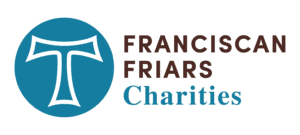With the deadline for filing your 2023 income tax return fresh on your mind, now would be an ideal time to think ahead and talk to your tax advisor about integrating a planned giving strategy that would maximize your tax benefits while also creating a legacy of benevolence for the 2024 tax year.
Planned giving earmarked for the Franciscan Friars, for example, would help the Friars continue well into the future their care for the poor and marginalized – service done in your name and with your blessing! Feeding the hungry and homeless, and providing food, clothing, medical care, and other basic life necessities to the more than 2 million children, women and men who come to Franciscan doorsteps across the country – soup kitchens, food pantries, outreach programs, health clinics and migrant centers – would be your legacy!
Your long-term philanthropic commitment could come in a bequest, charitable trust, or life insurance gift, to name a few opportunities. Consult with your financial professional and tax advisor on the following key elements of making planned giving part of your 2024 tax return preparation. It’s never too early to discuss your planned giving options and start your legacy.
- Assess how a legacy gift can be leveraged to maximize your deductions for the current tax year.
- Consider incorporating into your financial portfolio such giving mechanisms as donor-advised funds or charitable trusts, which not only provide tax benefits, but also make a lasting impact by designating assets for specific charitable endeavors. Imagine how many homeless and hungry guests you would feed on the Franciscan Breadline in New York City.
- Capitalize on the potential tax advantages of donating appreciated assets, such as stocks and real estate. This could lead to a deduction for the fair market value of the asset and may also eliminate capital gains taxes that would be incurred upon the sale of the asset.
- The forward-thinking approach of including planned giving in estate planning by designating charitable bequests in your will or trust allows you to allocate assets to preferred charitable causes with the potential of reducing the taxable estate.
- Explore the option of naming a charitable organization as your life insurance policy beneficiary, which could provide an estate tax deduction.
- Leverage required minimum distributions (RMDs) from your retirement accounts by transferring them directly to qualified charities. If you are over age 70.5, this strategy would allow you to fulfill your RMD while potentially reducing taxable income.
To learn more about how you can help the Franciscan Friars help our poor and marginalized sisters and brothers with your legacy gift, contact Brian Smail, OFM, via email at bsmail@friars.us or by calling 646-473-0265, ext. 303.

